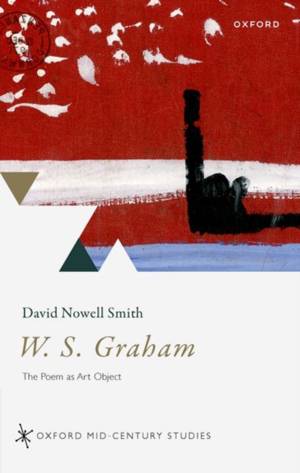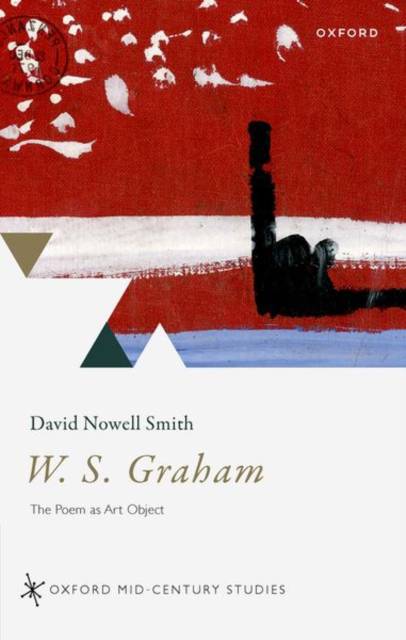
Door een staking bij bpost kan je online bestelling op dit moment iets langer onderweg zijn dan voorzien. Dringend iets nodig? Onze winkels ontvangen jou met open armen!
- Afhalen na 1 uur in een winkel met voorraad
- Gratis thuislevering in België vanaf € 30
- Ruim aanbod met 7 miljoen producten
Door een staking bij bpost kan je online bestelling op dit moment iets langer onderweg zijn dan voorzien. Dringend iets nodig? Onze winkels ontvangen jou met open armen!
- Afhalen na 1 uur in een winkel met voorraad
- Gratis thuislevering in België vanaf € 30
- Ruim aanbod met 7 miljoen producten
Zoeken
Omschrijving
On the peripheries of UK poetry culture during his lifetime, W. S. Graham is now recognized one of the great poets of the twentieth century. In the first concerted study of Graham's poetics in a generation, David Nowell Smith argues that Graham is exemplary for the poetics of the mid-century: his extension of modernist explorations of rhythm and diction; his interweaving of linguistic and geographic places; his dialogue with the plastic arts; and the tensions that run through his work, between philosophical seriousness and play, solitude and sociality, regionalism and cosmopolitanism, the heft and evanescence of poetry's medium. Drawing on newly unearthed archival materials, Nowell Smith orients Graham's poetics around the question of the 'art object'. Graham sought to craft his poems into honed, finished 'objects'; yet he was also aware that the poem's 'finished object' is never wholly finished. Graham's work thus facilitates a broader reflection on language as a medium for art-making.
Specificaties
Betrokkenen
- Auteur(s):
- Uitgeverij:
Inhoud
- Aantal bladzijden:
- 298
- Taal:
- Engels
- Reeks:
Eigenschappen
- Productcode (EAN):
- 9780192842909
- Verschijningsdatum:
- 31/10/2022
- Uitvoering:
- Hardcover
- Formaat:
- Genaaid
- Afmetingen:
- 147 mm x 221 mm
- Gewicht:
- 553 g

Alleen bij Standaard Boekhandel
+ 322 punten op je klantenkaart van Standaard Boekhandel
Beoordelingen
We publiceren alleen reviews die voldoen aan de voorwaarden voor reviews. Bekijk onze voorwaarden voor reviews.











